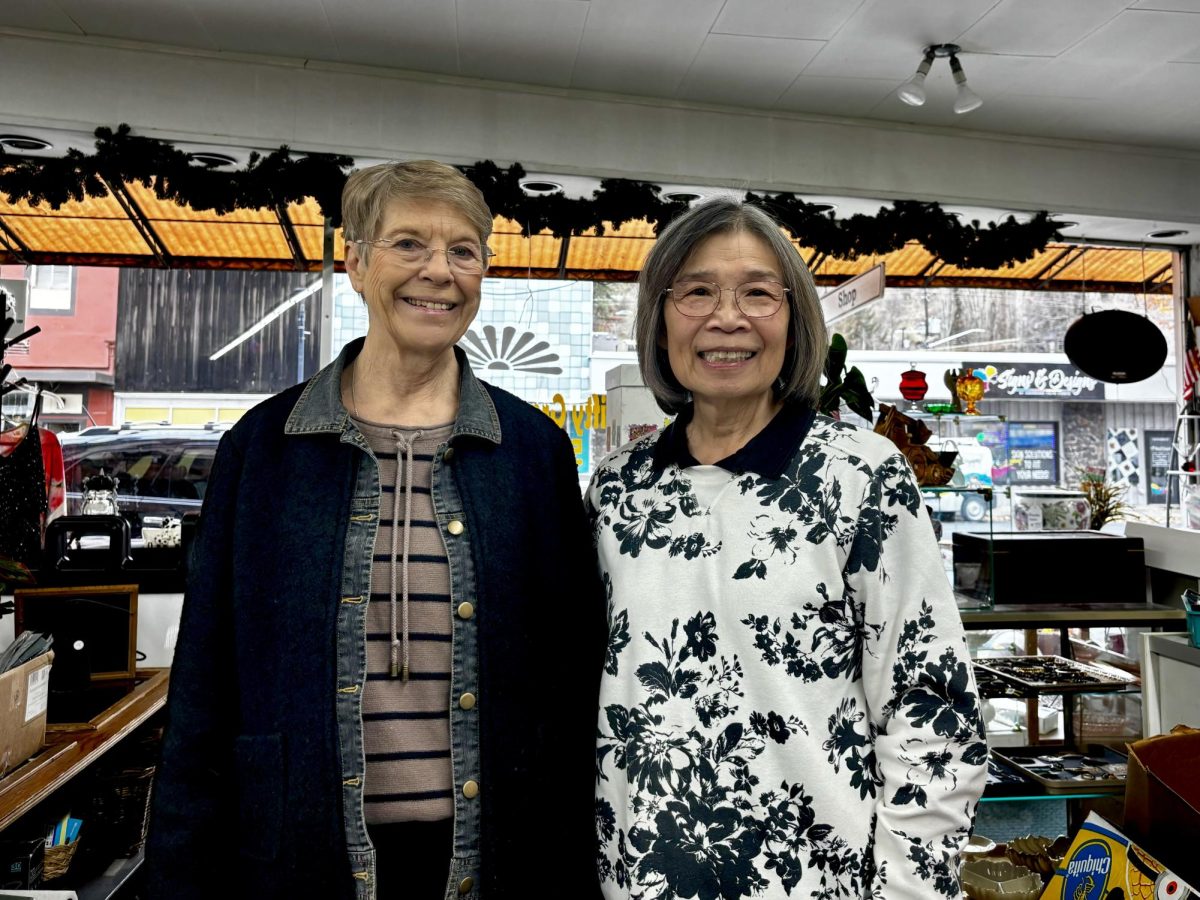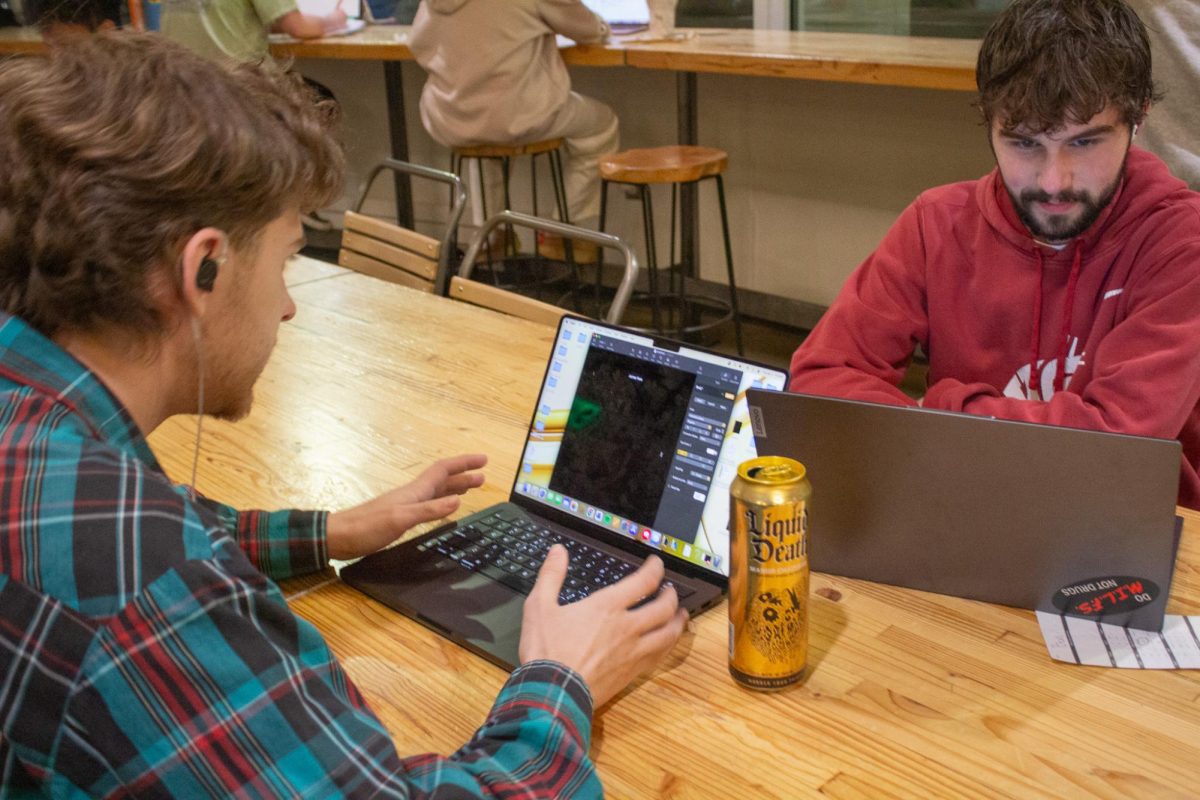Working at Thrifty Grandmothers Shop comes with a catch: You must be a grandma.
Or at least 55 years old.
This unique job requirement dates back to the 1950s when a group of grandmothers banded together to create the Busy Grandmothers Club. That club is active today, renamed the Colfax Thrifty Grandmothers Club, and its 12-14 members keep Thrifty Grandmothers Shop alive.
Club President Judy Young said she landed in the shop at the perfect time after retiring in 2021 from a 15-year career in the orthopedic clinic at Pullman Regional Hospital and five years in the equipment department.
“I was going stir crazy at home, ready to kill my husband because I was so lonesome and he was so tied up in all of his stuff,” she said. “I was just really lonesome.”
After cleaning her basement, Young found items she thought she did not need any more and donated them to the shop. Quickly noticing she needed those items back, she headed to the shop the next day, talked to an employee, and realized, “This is what I need to do.”
Now in her third year at the shop, the 75-year-old is not the only retiree who felt like getting back to work.
According to a T. Rowe Price study, a global investment management firm, around 20% of retirees have “unretired,” while 7% of retirees are looking for work. Around half of those who “unretired” went back to the workforce for financial reasons, while 45% went back for social and emotional connections.
The latter is why club Vice President Darlene Lee, 75, found herself working at the shop. She retired in 2017 after a career with the Whitman County Prosecutor’s Office and the Juvenile Department.
“I love the socializing of it, you kind of get to know everybody and you know if they’re in pain, you feel it,” Lee said. “And if they’re in trouble, you have somebody to lean on too.”
One of the top reasons why retirees head back into the workforce is because of the social isolation they feel in retirement, said AARP Washington spokesperson Christina Clem.
“The United States is a very work-driven society. There’s a lot of identity in working, and going out, and socializing with people, so the social aspect of going back to work is really common,” Clem said.
Health insurance and financial challenges are also driving more seniors back to work, as retirement savings often fall short of covering longer life spans, she said. However, returning to work also presents retirees with an opportunity to try a new career or explore a new hobby.
“Our faces are starting to wrinkle here and there, but I feel like I have probably as much stamina as I did when I was working, maybe more because I’m active and not sitting at a desk,” Young said, adding that this job makes her feel like she is still 40.
As a volunteer-based store, the shop collects donations for community and county causes, including summer lunch programs, the Colfax Junior Rodeo, buying Girl Scout cookies for city employees and many local high school programs.
Last year the grandmothers donated over $52,000 to the community, including $15,500 in scholarships for high school students across the Palouse. This year, the grandmothers are well over $60,000 in donations and their busy holiday season has just begun.
The shop, situated on Main Street, is filled with clothes, jewelry, purses, household items, books and more, all donated by the community. Its focus is on affordability, with children’s clothes starting at 50 cents, and other clothing and jackets starting at $2 unless it’s a high-end brand. Purses and accessories, since they’re not a necessity, can start at $5.
The shop sets high standards for what gets put on the shelves. All clothing must be in good condition with intact buttons, no tears and no stains. Donations that do not measure up are rerouted to Goodwill or are given to the homeless.
All donations are sorted by the grandmothers, who each have their own specialty.
“We have a person that does antiques, and we have one that does silver just so we kind of find our own niches,” Young said.
Lee, for example, specializes in purses and jewelry, taking time outside of work hours to research brands and polish jewelry so everything is organized and priced correctly. She has been working at the shop for six years.
“I set aside some time every week to work three hours on jewelry, and then sometimes if I get a lot of purses, I’ll check out the purses,” she said.
Grandmothers must also work eight hours a month, but Young said family always comes first and the ladies support each other when needed.
“They do not have to feel guilty if they miss a day or if they’re sick, unlike at work,” Young said. “We’re just totally grateful for any time that they’re available.”










